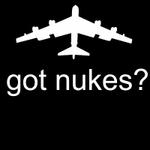 kleinundgrün schrieb:Lies doch bitte wenigstens richtig: Ich hatte von faktisch, nicht von zwingend gesprochen. Formaljuristisch ist es ggf. anders, als wenn es faktisch die EU angegriffen wird und sich im Krieg befindet.
kleinundgrün schrieb:Lies doch bitte wenigstens richtig: Ich hatte von faktisch, nicht von zwingend gesprochen. Formaljuristisch ist es ggf. anders, als wenn es faktisch die EU angegriffen wird und sich im Krieg befindet.
Das macht inhaltlich überhaupt keinen Unterschied und wenn du das Wort "zwingend" hinsichtlich "formaljurisitisch" interpretierst, frage ich mich, wer hier nicht richtig liest.
Ich würde dich da auch mal bitten, anhand eines Beispiels zu erläutern, was "formaljursitisch" kein Bündnisfall ist aber faktisch schon.
- Bündnisfall
- NATO-Einsatz
- Einfach nur irgendwas Bilaterales, wo NATO-Staaten integriert sind
das sind alles erhebliche Unterschiede.
Wenn du nur sagen möchtest, dass die NATO bei einem Angriff auf Finnland oder Schweden höchstwahrscheinlich intervenieren würde, Statuten hin oder her, weil das in ihrem strategischen Interesse liegt, dann solltest du das auch tun und dann wäre ich auch geneigter zuzustimmen.....jedenfalls wäre es sehr ratsam, dann zu intervenieren.
Dann hätte man sich
wenigstens richtig artikuliert.
Und dafür muss man nicht erst absurde Szenarien von einer in den Krieg ziehenden EU erfinden, die dann denn Bündisfall auslöst, weil Russland Paris im Zuge dessen bombardiert.
 kleinundgrün schrieb:Na ja, argumentiere halt inhaltlich dagegen. Wo sind diese Prämissen nicht plausibel?
kleinundgrün schrieb:Na ja, argumentiere halt inhaltlich dagegen. Wo sind diese Prämissen nicht plausibel?
Wenn man derart absolute Aussagen tätigt, sollte man die vllt auch selbst belegen.
Faktisch wissen wir nämlich überhaupt nicht, was bei EU-Mutual-Defence passiert, deshalb ist es auch ein wenig grotesk, es als gegeben vorauszusetzen, dass die EU bei einem Angriff auf Finnland oder Schweden dort augenblicklich einmarschiert und jegliche Länder Russland den Krieg erklären.
Dazu kommt noch der Non-Aligened-Status.
On paper, Article 42(7) has not too much to offer. First, the level of commitment is lower. NATO’s Article 5 is a tool of “collective defence” whereby an attack against one ally is seen as an attack against all allies. Compared to this, the EU treaty is less explicit in its wording and has a built-in safeguard. The obligation to assist does not affect “the specific character of the security and defence policy of some member states”. The phrase was added with the military non-aligned member states in mind, such as Finland, Sweden and Austria. But, if other member states choose to contribute only to a limited extent, there is little political and legal leverage – the European Court of Justice does not have jurisdiction in this area – to push them for more.
Second, the EU mutual defence clause misses any structural underpinning. It has never been defined how it can be implemented. Formal EU institutions, such as the European External Action Service, the European Commission and even the Council in which EU ministers meet, do not have any defined role. EU institutions in any case lack important capacities to coordinate concrete actions, such as permanent military headquarters. The effect is only bilaterally binding on member states.
Third, there is less “hard power” behind the solidarity. Without the US, which is obviously no partner to the EU mutual defence clause, Europe’s military is less capable of NATO-type out-of-area missions. Despite efforts of recent years to integrate European defence capabilities, they remained technically fragmented across member states. The lack of European hard power was visible during the air campaign in Libya in 2011, when European allies were mostly dependent on the muscles of the transatlantic partner. Europe might be able to deploy more force and spend additional money in the current fight against terror, as the heightened threat perception ensures public support. However, some of the missing integrated military systems and structures, such as a permanent EU military headquarter, will not appear overnight.
https://verfassungsblog.de/the-teething-of-eus-mutual-defence-clause/In the case of an aggression against a non-NATO EU member state, it is more conceivable that the EU’s defence clause would be triggered. Yet, in the absence of any detailed procedures for the implementation of the clause, the exact framework in which mutual assistance would take place remains unclear. The defence clause as such is purely intergovernmental and does not spell out any role for the EU’s crisis management structures. Purely bilateral scenarios are possible, as is close cooperation between the EU and NATO. The EU’s existing foreign policy and defence structures, such as the Political and Security Committee (PSC) and the crisis management and intelligence units in the European External Action Service (EEAS) and the European Commission, could also play a role. More detailed arrangements for the involvement of the Commission and the EEAS structures in crisis situations on EU territory were defined with regard to the more specific ‘solidarity clause’ that can be invoked in case of terrorist attacks and natural or man-made disasters.
https://verfassungsblog.de/all-for-one-eus-toothless-mutual-defence-clause/Article 42(7) remained dormant until France invoked it in 2015 in response to the Bataclan attacks. This sparked debates across the EU about how the article works in practice, how ‘armed aggression’ and ‘territory’ should be interpreted and to what extent the article applies to terrorism or to hybrid forms of aggression. In 2020 the Greek foreign minister openly hinted that it could be invoked in response to a confrontation with Turkey, prompting yet more handwringing in Brussels about the possible consequences of one NATO ally invoking the EU mutual assistance clause against another. As the EU prepares to adopt its Strategic Compass in early 2022, some member states have now asked for the article to be ‘operationalised’.
This is no small task. Opinions on Article 42(7) diverge sharply across the EU, ranging from member states who prefer to discuss it as little as possible in order not to undermine NATO’s primacy of collective defence, all the way to those such as France who see it as part of the EU’s ambition to become a geopolitical and security actor of its own.
[...]
In the course of this debate, it is important that Article 42(7) should not be misinterpreted as ‘the EU’s own Article 5’. It has deliberately been drafted differently from NATO’s collective defence clause, in order to take the specific circumstances and concerns of NATO allies and traditionally neutral EU member states into account. It is also more restrictive in terms of its territorial scope, which raises questions about the article’s potential application to the maritime domain, cyberspace or space itself.
https://www.clingendael.org/publication/uncharted-and-uncomfortable-european-defenceWenn du das natürlich weißt und alles sonnenklar ist, wäre es vermutlich geboten, dich mal bei Finnland und Schweden zu melden und ihnen mitzuteilen, dass sie darüber nicht diskutieren brauchen und längst durch den Bündnisfall geschützt sind. Das sei für Laien zwar schwer verständlich, aber sie binden sich damit nur unsinnige Pflichten ans Bein, verärgern Russland und haben im Grunde keine Vorteile.
Der EU würde das im Angesicht der Lage sicher auch einige Diskussionen ersparen.
 kleinundgrün schrieb:Wie kann sich da vernünftigerweise der ganze Konflikt auf Finnland beschränken?
kleinundgrün schrieb:Wie kann sich da vernünftigerweise der ganze Konflikt auf Finnland beschränken?
"Da" ist schon eine ziemlich forsche Annahme.
Der könnte sich beschränken, weil man wie jetzt einfach nur sanktioniert und Waffen und Gerät liefert, weil man zu mehr nicht in der Lage ist oder den Konflikt (regional) begrenzen möchte.
Der könnte sich beschränken, weil man einfach gar nichts tut, weil man zu mehr nicht in der Lage ist oder sinnlos rumdiskutiert, was jetzt "Territorium" und "Angriff" genau bedeutet oder man den Konflikt (regional) begrenzen möchte.
Der könnte sich beschränken, weil man sich wahrhaftig dazu hinreißen lässt, Soldaten und Gerät unter einer EU-Mission dorthin zu schicken, anstatt dass alle Länder Russland den Krieg erklären.
Oder ganz verrückt: So ein Angriff dient möglicherweise......gar nicht demselben Zweck wie in der Ukraine und begrenzt sich von selbst.
Geht die EU dann doch nach Russland?
 kleinundgrün schrieb:Würde Russland einfach abwarten können, was die EU so alles nach Finnland karrt und dann nur dort kämpfen?
kleinundgrün schrieb:Würde Russland einfach abwarten können, was die EU so alles nach Finnland karrt und dann nur dort kämpfen?
Was karren die denn dahin?
JoschiX schrieb:Oh Macron ist doch nicht der einzige Regierungschef mit Kontakt zu Putin:









